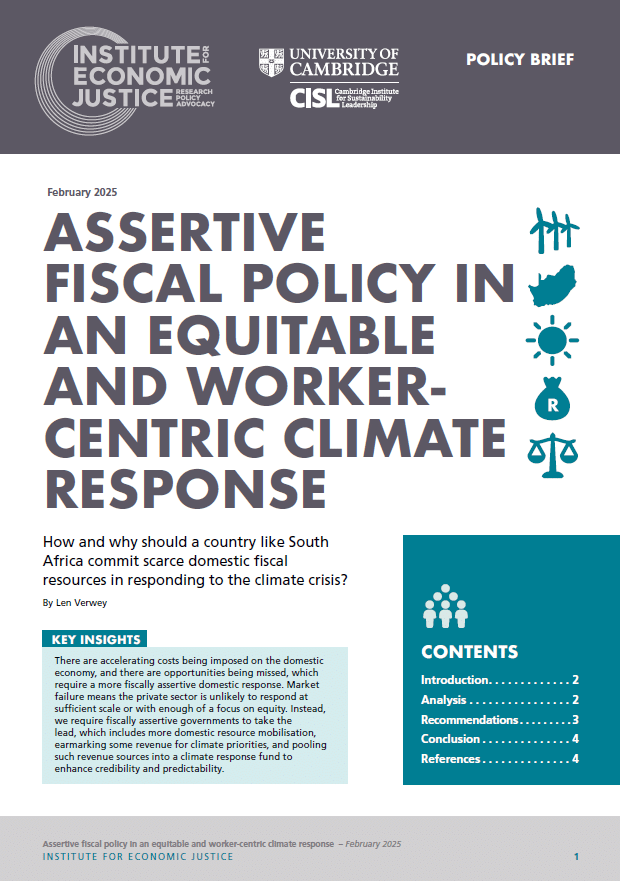South Africa faces a dual challenge: addressing the accelerating costs of climate change while seizing opportunities for equitable, worker-centric economic transformation. An assertive fiscal policy is essential to mobilise domestic resources, ensuring the country takes control of its climate future.
Why an Assertive Fiscal Policy Matters
Climate change imposes growing costs on South Africa’s economy, from infrastructure damage to missed green industrial opportunities. Market failures mean the private sector cannot deliver solutions at the required scale or equity. Instead, the government must lead by mobilising domestic resources, issuing sovereign green bonds, and implementing carbon pricing.
Key Recommendations
- Sovereign Green Bonds: Issue R100bn annually in green infrastructure bonds to finance renewable energy grids, ensuring state control and democratic accountability.
- Carbon Pricing: Establish a carbon tax pathway targeting R500 per tonne CO2 by 2040, generating R50bn annually for green industrial policies and a climate response fund.
- Earmarking Revenues: Dedicate 30% of the General Fuel Levy (R28bn) and all Mineral and Petroleum Resource Royalty revenues (R15bn) to climate priorities.
- Public Spending Reforms: Rationalise government structures to save R26.4bn annually, allocating 50% to climate responses.
- Retirement Tax Reform: Reduce the cap on retirement deductions, freeing R20bn for climate priorities.
The Climate Response Fund
Pooling earmarked revenues into a central climate response fund ensures predictability and credibility. This fund will address adaptation, worker transitions, and household vulnerabilities, ensuring equity in the energy transition.
The Path Forward
Combined, these measures generate R100bn annually for climate priorities, signalling South Africa’s commitment to climate action. This assertive fiscal policy is crucial to unlocking large-scale concessional and commercial finance, enabling a just transition by 2050.
By adopting an assertive fiscal policy, South Africa can protect livelihoods, drive green industrial growth, and ensure a fair, worker-centric climate response.

